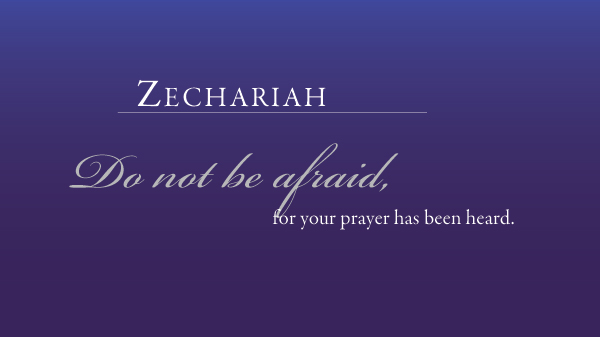
I have always had a soft spot in my heart for Zechariah. Luke's description makes it clear that he and Elizabeth lived faithfully and righteously, spending years hoping and praying for a child. So, when Gabriel comes to give him the good news about their son, some doubt seems more than reasonable. I can only imagine what it was like for Zechariah knowing that he was going to be 'mute and unable to speak until these things occur', especially given his initial questions.
Yet this whole process was an answer to prayer and part of a beautiful blessing. True faith isn't possible without at least a few questions, and Zechariah definitely had both. His response, both initially to Gabriel and to his ensuing muteness, is a testament to his humanity, but ultimately, his fidelity.
Advent is a season of waiting and of hope. In Spanish, the word 'esperar' means both 'to wait' and 'to hope'. I always conceptualized these verbs as distinct, but spending time in Chile using both interchangeably impacted my paradigm. During his Advent season, Zechariah would have learned about their connectedness in deeply intimate ways. Yet he remained faithful. As did God.
In this season of 'esperanza', may we embrace with the patience and hope of Zechariah the words of Gabriel when he says, "Do not be afraid; your prayers have been heard."
God does not always answer our prayers in the way that we expect, but He hears us.
Prayer
Loving God, this Advent, give light to those who sit in darkness, guide us in the way of peace, and teach us to wait in hope for the coming of your son. Amen.
Like this reflection? Sign up here.
 Alliance for Catholic Education
Alliance for Catholic Education